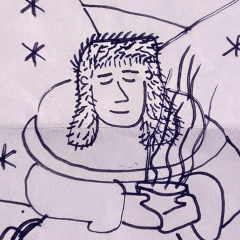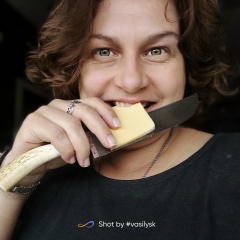Ещё одна особенность фламандского наречия – общебельгийская. Голландцы любят про всё говорить LEKKER – вкусно. И еда lekker, и девушка, и научная статья, и квартира и красивый гол. А бельгийцы любят всё уменьшительно-ласкать. В духе подождите секундочку, человечек подскочит решить вопросик. Для этого в конец слова добавляется -tje, -pje, -ke. Momentje, filmpje, Ivantje. Ближайший аналог – немецкое -chen. Самое смешное, что это добавляется не только к существительным. Вполне можно сказать hallotjes и mercitjes (mercikes по-гентски). По понятным причинам во фламандском много заимствований из французского. Поэтому возникают такие дикобразы, как cavatjes (от фр. «ça va» – «привет, как дела» и «привет, всё ок»). Ну и мы дико угорели, когда в комментариях к ютуб-ролику увидели TOPJE!
Я смеялся над всеми этими словечками, пока не понял, что всё это есть и в русском. По-порядку упомянутого: приветик, спасибки, как делишки и, конечно, ТОПЧИК. А если представить, что нужно объяснить кому-нибудь происхождение формы "сорян", то в принципе бельгийские словечки уже не кажутся нелепыми вообще.
- Do you add Armenian last name endings to words just for fun?
- Well... not really... but, yeah, sort of...
Кстати, по-голландски Тин-Тина зовут Кёйфье – от причёски, «Хохолок».
Я смеялся над всеми этими словечками, пока не понял, что всё это есть и в русском. По-порядку упомянутого: приветик, спасибки, как делишки и, конечно, ТОПЧИК. А если представить, что нужно объяснить кому-нибудь происхождение формы "сорян", то в принципе бельгийские словечки уже не кажутся нелепыми вообще.
- Do you add Armenian last name endings to words just for fun?
- Well... not really... but, yeah, sort of...
Кстати, по-голландски Тин-Тина зовут Кёйфье – от причёски, «Хохолок».
Another feature of the Flemish dialect is the common Belgian one. The Dutch love to talk about everything LEKKER - delicious. And food lekker, and a girl, and a scientific article, and an apartment and a beautiful goal. And the Belgians love to caress everything. In the spirit, wait a second, the little man will jump to solve the question. To do this, add -tje, -pje, -ke to the end of the word. Momentje, filmpje, Ivantje. The closest analogue is German -chen. The funny thing is that this is added not only to nouns. It is quite possible to say hallotjes and mercitjes (mercikes in gent). For obvious reasons, in Flemish there are a lot of borrowings from French. Therefore, porcupines such as cavatjes arise (from the French “ça va” - “hello, how are you” and “hello, everything is ok”). Well, we were wildly crazy when we saw TOPJE in the comments on the YouTube video!
I laughed at all these words until I realized that all this is in Russian. In order of the aforementioned: hello, thanks, how's it going and, of course, TOPCHIK. And if you imagine that you need to explain to someone the origin of the form of "rubbish", then, in principle, the Belgian words no longer seem ridiculous at all.
- Do you add Armenian last name endings to words just for fun?
- Well ... not really ... but, yeah, sort of ...
By the way, in Dutch Tin-Tina's name is Koyfye - from the hairstyle, "Crest".
I laughed at all these words until I realized that all this is in Russian. In order of the aforementioned: hello, thanks, how's it going and, of course, TOPCHIK. And if you imagine that you need to explain to someone the origin of the form of "rubbish", then, in principle, the Belgian words no longer seem ridiculous at all.
- Do you add Armenian last name endings to words just for fun?
- Well ... not really ... but, yeah, sort of ...
By the way, in Dutch Tin-Tina's name is Koyfye - from the hairstyle, "Crest".

У записи 52 лайков,
2 репостов,
1377 просмотров.
2 репостов,
1377 просмотров.
Эту запись оставил(а) на своей стене Иван Иванчей

































































